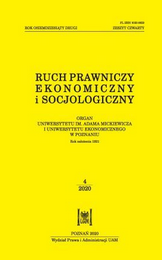HYDRA LERNEJSKA, CZYLI O BRAKU MOŻLIWOŚCI POGODZENIA WYROKU TRYBUNAŁU KONSTYTUCYJNEGO Z INSTYTUCJĄ KLAUZULI PRZECIWKO UNIKANIU OPODATKOWANIA
THE LERNAEAN HYDRA – ON THE IMPOSSIBILITY OF ACCOMMODATING THE CONSTITUTIONAL TRIBUNAL’S JUDGMENT AND THE GENERAL ANTI-AVOIDANCE RULE
Author(s): Edgar DrozdowskiSubject(s): Constitutional Law
Published by: Uniwersytet Adama Mickiewicza
Keywords: general anti-avoidance rule; GAAR; constitutionality;
Summary/Abstract: This article sets forth the following argument: the legal norm hypothesis of the general antiavoidance rule (hereinafter: GAAR) does not conform to the terms set out by Constitutional Tribunal in the judgment of 11 May 2004 (case no. K 4/03). The new regulation failed to specify the premises for the application of GAAR in accordance with the Constitutional Tribunal’s requirements. The new GAAR is more complex and unfortunately more convoluted than its predecessor, placing it at odds with Article 2 in conjunction with Article 217 of the Constitution of the Republic of Poland. The conclusions of the article indicate that it is impossible to create a GAAR that conforms to the terms set out by Constitutional Tribunal, as this would effectively entail the elimination of the GAAR from the Polish legal system. In place of the current GAAR, a new GAAR should be implemented – similar in scope to the German GAAR and compliant with the requirements set out in Article 6 of the ATA Directive. Taxpayers’ rights should be guaranteed by the culture of trust established between the taxpayer and the tax administration, the independent judiciary and specific procedural solutions.
Journal: Ruch Prawniczy, Ekonomiczny i Socjologiczny
- Issue Year: 82/2020
- Issue No: 4
- Page Range: 187-202
- Page Count: 16
- Language: Polish

